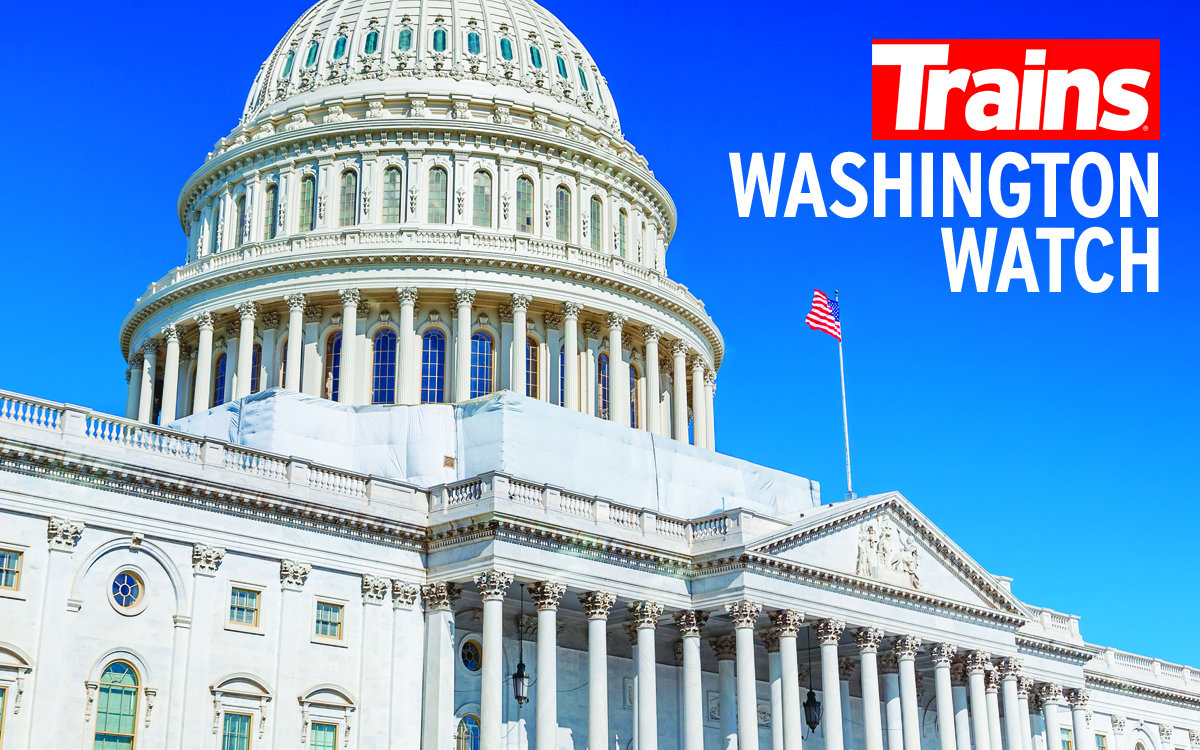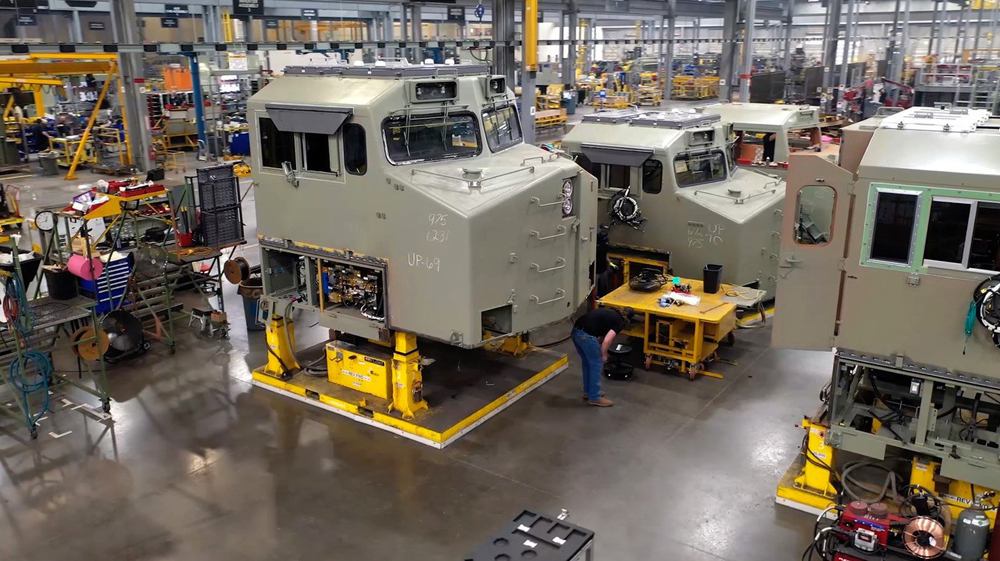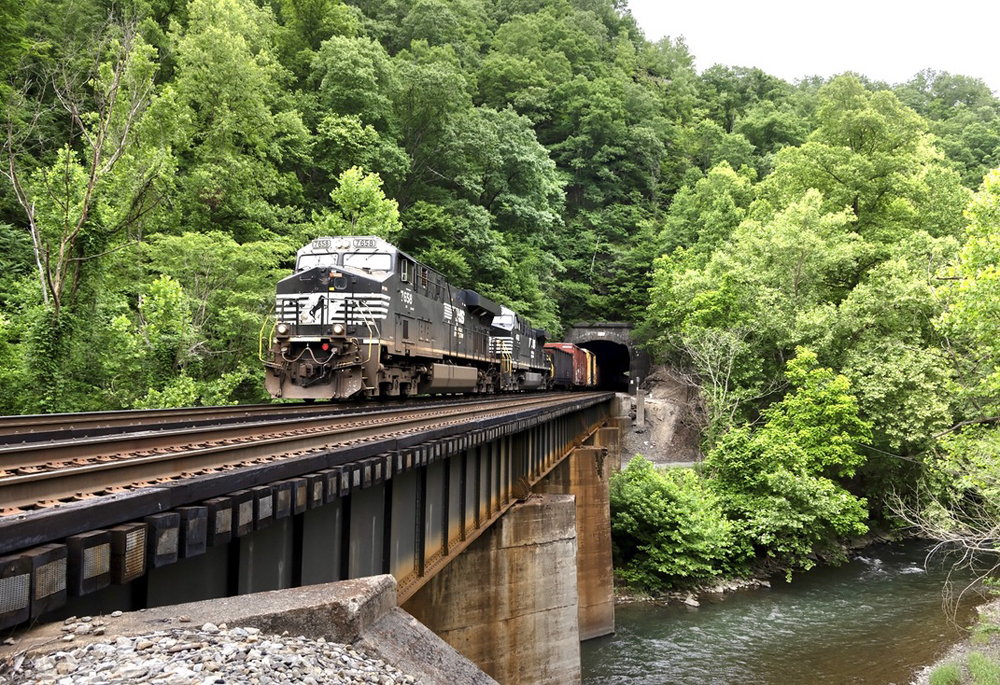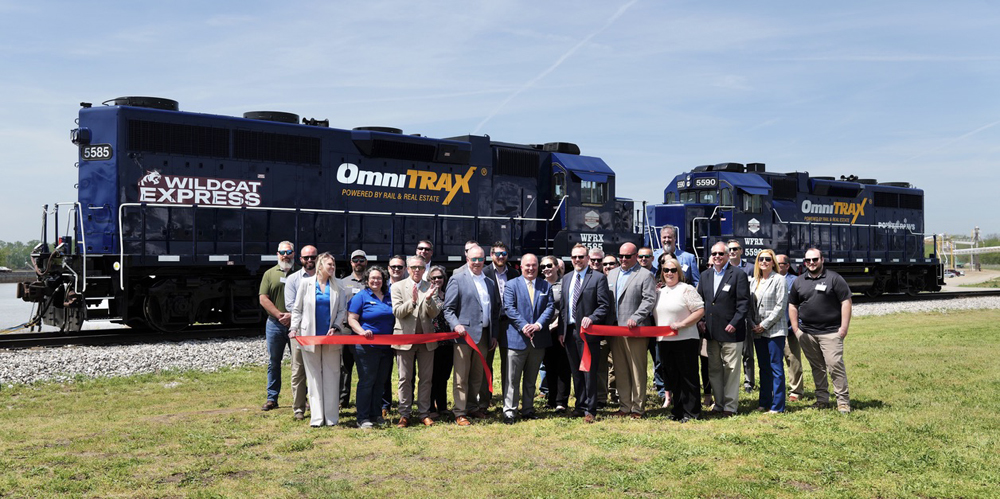But disgruntled shippers tell a different story: They say they’re paying the price for cutbacks in people and motive power that make railroads more profitable as service suffers.
Railroad customers and their trade associations complained to Congress on Thursday during a shipper roundtable hosted by the U.S. House of Representatives’ Subcommittee on Railroads, Pipelines, and Hazardous Materials. The two-hour forum was a one-sided affair, with no railroads invited to participate.
Shippers say they understand and support the rail industry’s need to become more efficient and more profitable in order to fund reinvestment in their networks. But PSR has gone too far, they say, and rewards investors to the detriment of customer service.
Shippers also were critical of what they say is the rail industry’s lack of collaboration and communication regarding PSR-related operational changes.
“A combination of poor service and rising costs over the last few years is not only unacceptable — it falls in the category of unimaginable,” says Mike Amick, a senior vice president at International Paper, the largest user of boxcars.
International Paper’s cars might be delivered on time to the local serving yard, Amick says, but reduced local service means delivery to the company’s mills is often delayed.
“So the cars are close enough to touch but we can’t really reach them or access them,” he says, a situation that creates bottlenecks at mills that run around the clock.
Ross Corthell, vice president of transportation at Packaging Corp. of America and head of the National Industrial Transportation League’s rail freight committee, says Class I first- and last-mile service leaves a lot to be desired. Railroads do a good job measuring the performance of road trains, but not local service.
“This is where railroads do a horrific job,” he says. “They’re very unpredictable, they make resource planning at our facilities almost impossible, and yet they don’t measure that service at all.”
At one mill, a railroad missed scheduled switches 22% of the time, Corthell says, and its local would show up at any hour of the day.
“Precision Scheduled Railroading is anything but precise at origin and destination,” he says.
Service for unit train customers is not immune.
“They may claim that PSR improves service but our experience, and that of many other shippers, has been the opposite,” says Emily Regis, fuels resource administrator the Arizona Electric Power Cooperative, which includes utilities in Arizona, California, and New Mexico.
Round-trip transit times from the coal mine to a New Mexico power plant used to average three to four days, but have doubled amid what Regis says are PSR-related power and crew shortages.
Much of the two-hour forum was a rehash of the arguments made in May at the Surface Transportation Board’s two-day oversight hearing on demurrage and accessorial charges.
Railroads say the policies are an incentive for customers to turn railcars more quickly, which reduces congestion and can result in better service. They also say the policies are designed to change customer behavior, not generate additional revenue.
Shippers complained that more restrictive demurrage and accessorial charges are one-sided, unavoidable, and lack reciprocity when a railroad doesn’t provide service as scheduled.
Another problem: Demurrage bills are often riddled with errors and challenging them is cumbersome at best.
“The entire burden of proof is on the shipper to prove the railroad’s invoice is inaccurate,” says Randall Gordon, head of the National Grain and Feed Association.
U.S. Rep. Dan Lipinski, D-Ill., said he convened the shipper forum as a follow-up to the Surface Transportation Board’s demurrage and accessorial hearing.
There’s no dispute that the Staggers Act of 1980, which partially deregulated freight railroads, has been a success, Lipinski says. But American companies need cost-effective and reliable rail service in order to compete in the global economy, he says.
U.S. Rep. Peter DeFazio, D-Ore., says he has “grave concerns” about Precision Scheduled Railroading.
The U.S. freight rail system is the envy of the world, he says, and it shouldn’t be threatened by Wall Street’s focus on short-term profits.















I live half a mile from BNSF’s main route into the Wyoming coal basin. Traffic is mainly coal, with perhaps 8 to 10 merchandise and intermodal trains added in, for a total of about 50 trains per day. UP’s Overland Route is at most a mile away, and traffic count is in the 45 to 50 trains per day, again mostly coal. So the train count on these two is close. I get to see operations of these two lines on a steady basis. It is easily obvious to see which line is more fluid and which line is growing train counts. The answer is BNSF, a non-user of the PSR method. My point is this; one line seems to be prospering, the other is treading water. UP is in a system-wide mode of extreme cost cutting, because car loadings are slowly declining. Revenues are propped up from rate increases, which can be done because most shippers are still captive and pay up because they have no other choice. There is no to little incentive to offer reasonable service. If the service supplied by a railroad is suspect, shippers will eventually find an alternative. If a business ticks off customers continually, the business gradually fails. Here is where PSR will eventually fail the railroads using it. So much for a reasonable rate of return to the stockholders. I have money invested in both BNSF and UP, and see how these two are doing on a continual basis. It is clear whom is doing better, the railroad NOT using PSR.
The ghost of Ewing H Harrison still hovers over this industry
Dad’s last job at Frisco was being the liaison between customers and the RR. He took orders for cars needed to load or unload and also took some complaints about getting an empty when they wanted a load, which went someplace else. He worked closely with Frisco sales staff to keep it running smoothly and for the most part, it did. They liked working with Dad and often took him to lunch and even gave him a Frisco cig lighter, supposed to be only for customers not employees. They told him to never tell anyone and he did not, it is one of my prized possesions now. But PSR was something unheard of in those days. I have heard BNSF has been taking a lot of customers from UP because they offer better rates and service. UP was used to being the top dog and rates were too high, so BNSF made theirs lower and it has worked out well. Don’t know if BNSF is doing PSR or not, I know UP and NS are, Harrison was all about pleasing stockholders and cutting jobs, not the best way to run a RR.
PSR sounds great but when you are a company at the end and your shipments are delayed or all bunched up and you can’t process all of them at once plus you get charged for not getting the return runs out fast enough you see it as “none PSR” and more like a railroads profit center.
Railroads are owned by the shareholders – not by the shippers or the public. If shareholders don’t see a competitive return on their investment, they will take their investment dollars elsewhere. If there are no investment dollars, then railroads will wither and die.
On the other hand, if investment in railroads earns shareholders top dollar, then more and more people will invest in the railroads. This means more money for the railroads to build and improve infrastructure – meaning bigger and better railroads.
So instead of criticizing railroads for trying to give an outstanding return to shareholders, you should be encouraging them to give shareholders the best return possible.
Of course this does not mean the railroads shouldn’t give better service than they do – but better service doesn’t have to cost more. It’s always been my impression that most shippers are not looking for more speed, but want predictability and information. They want to know when their shipment is going to arrive and then have it actually arrive when predicted. That’s where I think the railroads are falling down.
Eventually PSR will cause re-regulation. The big rails will have only themselves and Wall Street to blame. Mr. Harrisons’ legacy will forever be tarnished, and rightfully so. Out here in central Nebraska, Union Pacific trains are more likely to crawl than dash from terminal to terminal. Trains more than two mIles in length carry stacks, piggyback, auto racks, grain, lumber, chemicals, aggregates, and more all on the same train lumbering along at 45 miles per hour. Looks inefficient as can be, but it sidelines massive numbers of motive power, rolling stock, and employees, hence cutting costs and driving profits. So far revenues haven’t been negatively impacted because shipping rates are rising faster than inflation. Carloads are down in most categories, even though our economy is more stable than shaky. UP is closing yards left and right because they are inefficient and excess capacity. The mega-system glory days are over and not coming back. The big systems that have embraced PSR are in a slow self-destruct mode. Revenue growth will no longer exist because they are driving customers away with poor service. Guess what that brings. Re-regulation. UP’s Overland Route looks nothing like it did a few years ago.
ive been railroading for 25 years, and the shipper are exactly right, PSR, needs to go away and the railroads start serving the customers, class one service has gone from bad to even worse under PSR .Wall st. and the CEOs are the only ones that benefit.
The short lines and regionals are being hurt too; they rely on on-time arrivals of their interchange traffic for timely delivery to their customers. NS, for one, doesn’t seem to understand that. A short line operator who has taken over a line that NS spun of for “insufficient business” (read: lack of any marketing effort), has been very successful in dramatically increasing business along the line by the usual method of great customer service, on-time deliveries, etc.. Now NS is hurting them with undependable arrivals of interchange traffic.
If Congress re-regulaes the railroads – the worst thing that could happen – EHH and his followers can take the blame.
It seems that PSR will only make shippers seek alternative means of transportation, Class 1’s shouldn’t be dictating to their bread and butter (shippers) but going out of their way to work with them. Accountants shouldn’t try and run a railroad, they have no knowledge.
PSR is nothing more that a scam to enrich high level shareholders. It is a short term cut of resources which does not ensure a viable long term franchise built on finding new business.
After many years of reading other accounts I know that poor shipping would never be allowed in Canada. However they don’t have a Staggers Act.
I have a crazy thought. Instead of complaining to regulators, why can’t a group of the power companies and other large shippers just buy a controlling interest in the railroads and start putting boards in that are more amenable to their concerns.
Cutting service to cut costs is WRONG! Railroads are stupid to accept short term gain for long term disaster.
Why the railroads might as well contract out switching and blocking to shortlines. They handle F/L Mile service superior to what the Class 1’s do..Either that or open access will be the result..
Maybe DeFazio should be talking to Wall Street about their demand for short-term gains…since it not only applies to railroads but every single industry in the U.S. that is traded publicly on a stock exchange.
It will be interesting to see if the rail shipping community can keep this topic teed up before Congress and the Surf Board. Keeping the pressure on will be the only way to get regulators to intervene and attempt to mitigate some of the problems resulting from PSR.
Why am I not surprised; didn’t we (as non-railroaders) see this coming? A pox on Wall street for causing this!
As the nation’s road network continues to deteriorate, and is unable in any case to absorb growth,Class 1s have fairly invited re-regulation. If they don’t change their behavior, it will become the only way out if the domestic economy is to continue growing. As regulated public utilities, rails have an obligation to effectively serve the public at large as a condition of their franchise. They violate that obligation at their peril’ No one wants to return to the pre-Staggers bad old days of obtuse, destructive ICC and state PUC regulation. The current status quo is intolerable over time and the sooner it is recognized and corrected, the better for everyone.
But Wall St and Hedge Fund managers love PSR and their ORs. Damn those complaining shippers. What do they know? SARCASM !!!!
As a CN trainmaster once said ‘ These damn customers don’t they realize we have a railroad to run here”.
The shippers and manufactures know if the shipments they rely on, to make their products, are getting to them on time. The railroad corporations are just playing the businesses, like some politicians. They want you to Believe what they tell you instead of what you see with your own eyes. What I have said before, the railroads feel the customers just get in the way of them making more money!